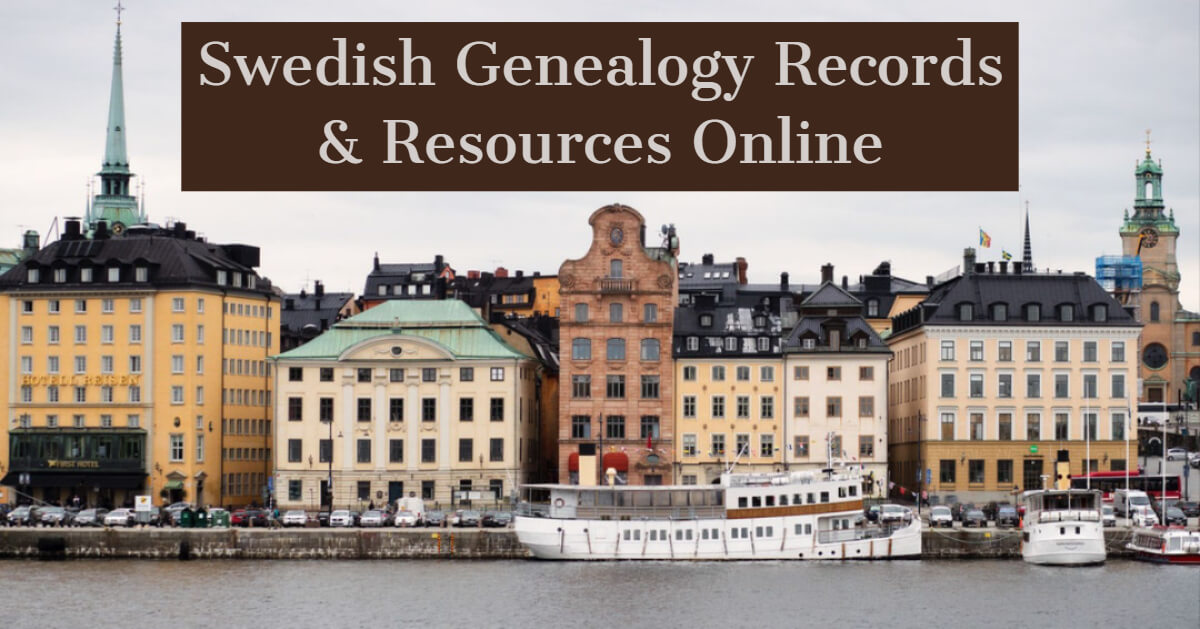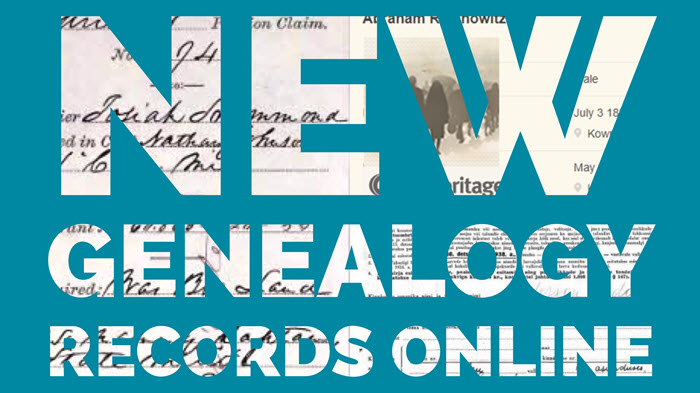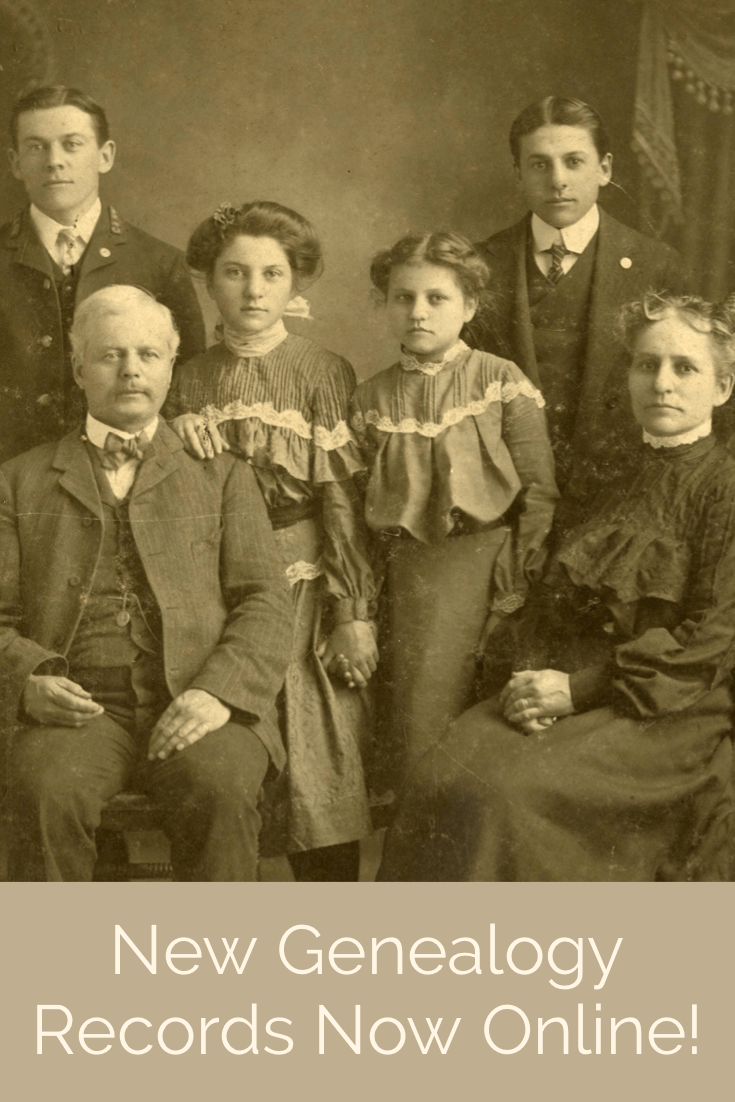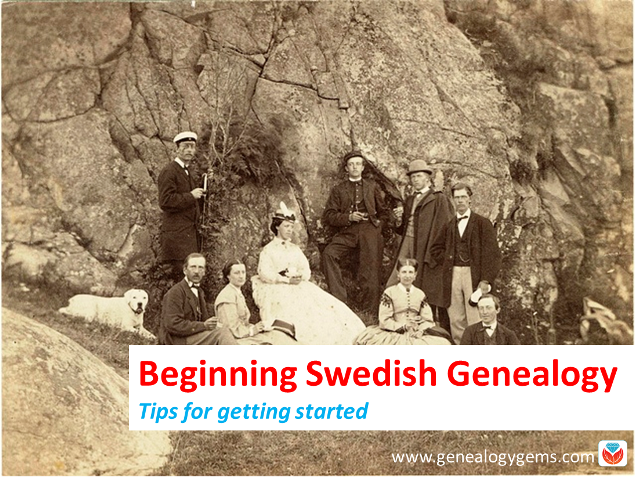Blog


Swedish Genealogy Records & Resources Online
This week’s Friday records post is all about Swedish genealogy! Findmypast has added 12 million Swedish records to their international collection, and we’ll show you other resources for accessing similar records. We’ll also highlight some past unique collections for Sweden, and you can explore expert research tips from a professional genealogist.

Featured: Swedish Genealogy Records Online
June 6 is the National Day of Sweden, which honors two historical events: Gustav Vasa being elected king on June 6, 1523, and the adoption of a new constitution on June 6, 1809. After decades of discussion, the Swedish parliament finally voted to make June 6 a public holiday. And we can’t think of a better way to observe than to spend time researching your Swedish ancestors!
As Findmypast continues to grow their international records database, they’ve highlighted the recent addition of Swedish records to their collection. Over 12 million Swedish baptisms, marriages, and burials are now dating back to 1611 are now available to search on Findmypast. These records will also generate hints against your Findmypast family tree.
Their Swedish collection consist of the following indexes:
If you’re a Findmypast subscriber, head over there now to explore these indexed records. If you’re not a Findmypast subscriber, you can explore select Swedish baptisms, burials, and marriages at Ancestry.com. You can also find select Swedish baptisms, burials, and marriages at FamilySearch.org for free.
Unique Swedish Genealogy Resources
Swedish Newspapers. A couple of years back we highlighted the Minnesota Historical Society’s collection of Swedish-American newspapers. They are available through an online portal. Users can explore more than 300,000 pages from 28 different Swedish-American newspaper titles published across the U.S. between 1859 and 2007. The portal is available in Swedish and English and includes a keyword search.
Biographies of notable Swedish women. The Chicago Evening Post reported on a new online biographical dictionary of women in Swedish history. The site itself is Svenskt kvinnobiografiskt lexicon (it does have an English-language home page). The home page encourages visitors to “Read up on 1,000 Swedish women from the Middle Ages to the present day. Use the search function to reveal what these women got up to, how they were educated, which organisations they belonged to, where they travelled, what they achieved, and much more. All of them contributed in a significant way to the development of Swedish society.” According to the Chicago Evening Post, the current collection of 1,000 biographical sketches will soon double (at least)
Expert Swedish Genealogy Research Tips
Swedish genealogy can be daunting. Many people avoid Swedish research because they don’t speak the language and because the names change every generation–like from Ole Olsson to Ole Nilsson to Nils Pehrrson. Despite these barriers, Swedish research can be relatively simple, fun, and successful! In a special guest article, Paul Woodbury, a Senior Genealogist with Legacy Tree Genealogists, shares the following 5 things to keep in mind when researching your Swedish ancestors:
- You can “read” many records without reading Swedish.
- Family events are summarized in Swedish clerical examinations.
- Many Swedish records cross-reference each other.
- You can trouble-shoot record gaps.
- There are some excellent Swedish indexes and databases online.
Paul covers these 5 points in-depth in this special article. Click here to read it now!

Disclosure: This article contains affiliate links and Genealogy Gems will be compensated if you make a purchase after clicking on these links (at no additional cost to you). Thank you for supporting Genealogy Gems!

New & Updated US Genealogy Records Online
From coast to coast, U.S. records from the ‘genealogy giants’ are new and updated this week. Findmypast has a new collection of mine accident records for Pennsylvania (and we’ll also highlight a similar collection for England). Ancestry.com has updated a large number of genealogy collections for U.S. marriage, census, and military records that you’ll want to check out. And lastly, FamilySearch has made updates to a small set of U.S. county, tax, and enumeration records.

Pennsylvania, Register Of Mine Accidents
Mining was an integral part of United States history. Immigrants were able to find work in the mines but sometimes at great risk and peril. Findmypast has a new collection that may shed light on the miners in your family tree.
The Pennsylvania Register of Mine Accidents is a collection containing records from the Department of Mines and Mineral Industries. These records document mine accidents for the anthracite districts and the bituminous districts between 1899 and 1972. They are held by the Pennsylvania State Archives and links to the PDF versions of the accident registers are available on the transcripts.
Updated U.S. Records at Ancestry.com
Over at Ancestry.com you’ll find big updates to numerous records collections for the U.S.
Marriage Records
- Florida, County Marriage Records, 1823-1982
- Indiana, Marriages, 1810-2001
- Kentucky Mercer County Marriages (1786-1800) & Wills (1786-1801)
- Michigan, County Marriage Records, 1822-1940
- Michigan, Marriage Records, 1867-1952
- Montana, County Marriage Records, 1865-1993
- Oregon, County Marriage Records, 1851-1975
- Utah, Weber and Piute County Marriages, 1887-1940
Military Records
- Massachusetts Army & Navy, 1861-1865
- Missouri State Offices Political and Military Records, 1919 – 1920
- Official records of the Union and Confederate Armies, 1861-1865
- Kansas 353rd Infantry Regiment in World War I
- Connecticut State Register, 1924 Government & Military records
- U.S. WWII Draft Cards Young Men, 1940-1947
Census Records
- 1850 U.S. Federal Census – Slave Schedules
- Arizona and New Mexico Territories Census, Late 1800s
- Michigan, State Census, 1894
- Arkansas Census, 1840
More Updated US Genealogy Records at FamilySearch
Lastly, we head over to the all-free genealogy giant website FamilySearch. This week they’ve made updates to the following US genealogy records collections:
- Kansas, Gove County Enumeration Books and List of Residents, 1909-1950
- Montana, Sanders County Records, 1866-2010
- Ohio Tax Records, 1800-1850
- Texas, Cooke County, Deeds, 1895-1924
- Texas, Swisher County Records, 1879-2012
Most of these updates are pretty small, under 2,000 records. But you never know where your ancestor’s name might be lurking! The Ohio Tax Records collection has over 1.5 million new records, so if you have Ohio ancestors you’ll definitely want to check it out.
More U.S. Research Resources on the Free Genealogy Gems Podcast
If you’re filling in the gaps of your family tree with your U.S. ancestors, you’ll love episode #193 of the free Genealogy Gems Podcast! In this episode, we’ll talk about tips for using the U.S. Public Records Index. We’ll also dig deep into using the Freedom of Information Act (FOIA) for genealogy research, including what kind of records you can access, how to request them, and more. Take listen to this episode right now in the YouTube media player below, or find it on the go on the Genealogy Gems App!

Disclosure: This article contains affiliate links and Genealogy Gems will be compensated if you make a purchase after clicking on these links (at no additional cost to you). Thank you for supporting Genealogy Gems!

Millions of New Genealogy Records Online for Norway & Europe
The UK ‘genealogy giant’ Findmypast has made exciting new updates to their records this week! They’ve announced over 100 million new European records are now available online, and this week highlights their extensive collection for Norway. Also new this week are genealogy records for Staffordshire, England; Queensland, Australia; and Ontario, Canada.

New European Records Online: Norway Featured
Findmypast recently announced their addition of over 100 million new European records now online. “Over 114 million new European births, baptisms, marriages, banns, deaths and burials are now available to search and explore on Findmypast. The new additions consist of transcripts sourced from the International Genealogical Index, a database compiled from a variety of sources from around the world.
Featured from this huge addition are three new indexes containing over 9.1 million Norwegian baptisms, marriages and burials are now available to search as part of our new collection of European records. These new collections span nearly 300 years of Norwegian history (1634 to 1927) and will generate new hints against your Findmypast family tree.
Anyone with ancestors from Norway has probably tapped into the National Archives of Norway’s Digital Archive. It’s one of the shining stars on the Internet that offer rays of research hope for those with Norwegian heritage. That’s why I was thrilled to be able to interview Yngve Nedreb, the Chief archivist at Riksarkivet (National Archives of Norway) for the Family Tree Magazine Podcast. In fact, I published an extended version of that interview in episode #161 of The Genealogy Gems Podcast. This is a “must hear” for those with Norwegian heritage! Click below to listen right now:
Lisa’s special guest: Yngve Nedrebø, Chief Archivist at Riksarkivet. http://www.arkivverket.no/eng/Digitalarkivet
Staffordshire, England Vital Records
Another brand new genealogy records collection online is over at Ancestry.com. The Staffordshire, England, Birth, Marriage and Death Indexes, 1837-2017 collection comprises indexes of civil registrations from Staffordshire, excluding the City of Stoke-on-Trent, reported quarterly to the General Register Office (GRO) in London.
- Name
- Maiden name of mother
- Date of event
- Death Age
- Place of Marriage
- Gender
- Registration district (each county in England and Wales was divided up into registration districts; jurisdictions are organized and appear as they existed at the time the record was created)
- Reference
Queensland, Australia
Also new at Ancestry is the Queensland, Australia, Licensed Victuallers Index, 1900-1903. The names of holders of victuallers’ licenses (publicans) were printed in the Queensland Government Gazette from 1900 to 1914 on an annual basis. This index covers the period from 1900 to 1903 and includes names, districts, and hotel names.
More about licensed victuallers from Wikipedia: “In the United Kingdom the owner and/or manager of a pub (public house) is usually called the “landlord/landlady”, and often, strictly incorrectly, “publican”, the latter properly the appellation of a Roman public contractor or tax farmer. In more formal situations, the term used is licensed victualler or simply “licensee”.[9] A female landlord can be called either a landlady or simply landlord.”
Ontario, Canada Insurance Policy Applications
Findmypast has another new collection now available online. “Did your Canadian ancestor apply for life insurance with The Independent Order of Oddfellows (IOOF) between 1875 and 1929? The IOOF is one of the world’s oldest fraternal orders. These insurance records are a unique source for tracing your family history. You will find images of the original applications which include your ancestor’s medical history, family’s medical history, and a physical description. The applications are two pages long. Be sure to use the next arrow to move to the next image.
Click to search the Ontario, Oddfellows Life Insurance Applications.
Discover More with the Genealogy Giants
Here at Genealogy Gems, we’ve adopted the name ‘Genealogy Giants’ to refer to the 4 major genealogy records websites: Ancestry.com, Findmypast.com, MyHeritage.com, and FamilySearch.org. Each website has its own unique and distinct offerings, but there can also be a lot of overlap. So with hefty subscription price tags, the question we’re often asked is, “Which website subscription do I need?” To tackle this, Sunny Morton’s RootsTech class uncovers the secrets on how to compare these 4 giants so that you spend your time and money wisely. Watch the entire presentation for free below, and then grab a copy of the companion quick reference guide Genealogy Giants: Comparing the 4 Major websites.

Disclosure: This article contains affiliate links and Genealogy Gems will be compensated if you make a purchase after clicking on these links (at no additional cost to you). Thank you for supporting Genealogy Gems!

